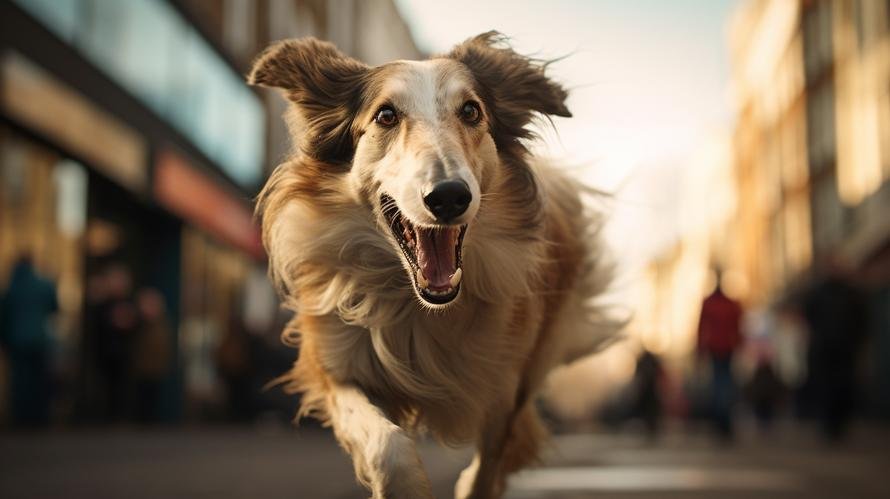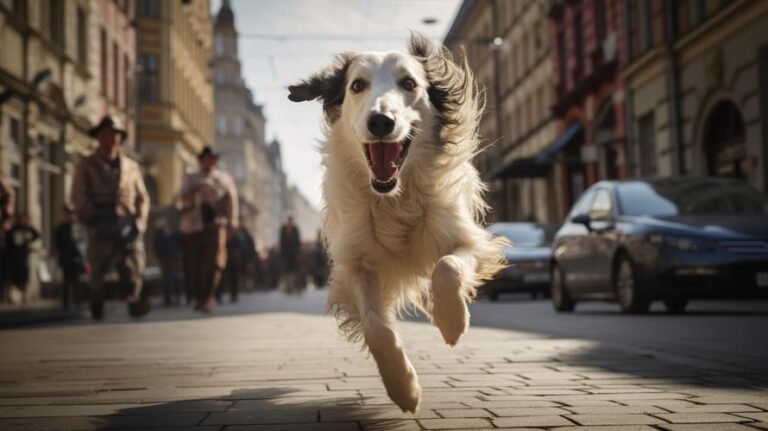Did you know that the Borzoi, sometimes referred to as the Russian Wolfhound, was selectively bred to chase down wolves in the Russian wilderness? Steeped in a rich history, these dogs were lavished upon by Russian nobility and even used as forms of currency in past times. Now, they sit nestled in the homes of dog lovers all over the world, winning hearts with their elegance, beauty, and graceful demeanor. But when it comes to feeding this luxurious breed, one burning question that pops up time and time again is whether or not Borzois should eat a grain-free diet.
Understanding the dietary requirements of Borzoi starts with understanding their history and lifestyle. Today, the demanding physical activities that their ancestors undertook have significantly been cut down. Modern Borzois spend their days on their comfy beds or lounging in their spacious backyards, rather than hunting wolves. Still, they require a balanced diet to keep their lean bodies healthy and functioning at their best.
Now, the grain-free trend in dog food is something you probably have come across. Supporters argue that because dogs are primarily carnivores, it’s unnecessary and even unhealthy for them to consume grains. On the contrary, skeptics point out that grains like barley, oats, and rice can actually provide beneficial nutrients.
So, where does the truth lie? And more specifically, should your Borzoi be eating a grain-free diet?
Grains aren’t bad for dogs inherently. Many types of grains, like oats and brown rice, are a good source of wholesome nutrients, fiber, and energy. They offer proteins, vitamins, and minerals that are necessary for your dog’s overall health. However, the concern arises for dogs that are allergic or intolerant to grains.
Yes, dogs can have allergies, too, and it’s not as uncommon as you might think. Just like us, they can develop intolerances or allergies to certain ingredients in their food, which may include grains. Common symptoms of allergies in dogs are itchy skin, constant scratching, persistent ear infections, and digestive issues like diarrhea and flatulence. These symptoms, especially in combination, could signal a possible food allergy or intolerance, including grain sensitivity.
If your vet officially diagnoses your Borzoi with a grain allergy or intolerance, then, of course, a grain-free diet would be optimal for your four-legged friend. You’ll want to choose a diet that is tailored to the specific dietary needs of your Borzoi and doesn’t contain the allergenic grains.
However, if your Borzoi is not allergic to grains and you’re considering a grain-free diet simply because it’s trendy, then it’s crucial to understand that grain-free does not necessarily equate to healthier. Grains are not “fillers” — they provide necessary nutrients. Even so, if you choose to go down the grain-free route, remember, it’s vital that your dog’s diet should be nutritionally balanced and complete.
Let’s underline that last point: well-balanced. While the grain-free vs. grain debate continues, all dog food manufacturers agree that a well-balanced diet is key. Dogs need a certain amount of carbohydrates, protein, fats, vitamins, and minerals in their diet, and grains often contribute to fulfilling these requirements.
To achieve this balance, consider rotating the protein sources in your Borzoi’s diet. Chicken today, beef next week, maybe even some fish the following week. Not only will this practice ensure a good mix of protein types for a full amino acid profile, but switching up the proteins will also make mealtimes all the more exciting for your furry companion.
Providing your Borzoi with a grain or grain-free diet depends mostly on your dog’s specific needs and not general assumptions or trends. Before making any significant changes to your dog’s diet, it would be wise to consult your vet or a canine nutritionist.
So, next time when you’re tossing up between a bag of regular dog food and its grain-free alternative for your beloved Borzoi, remember that what really matters is not the “grain-free” stamp on the packet, but the overall nutritional value it brings to your dog’s bowl. Just like us, our pets need a balanced diet, and whether that includes grains or not depends on our pooches and their unique needs.



